Sunningdale School’s curriculum approach is relatively unique and the school is recognised by Equals as an exemplar school for delivering pre-formal, semi-formal and informal curricula.
To ensure that we are able to meet each child’s holistic needs as specifically as possible Sunningdale School’s curriculum is arranged into four pathways. These are the Pre-formal Pathway; the Explore Pathway; the Semi-formal Play Pathway; and the Formal Pathway. Each of these Pathways has its own distinct overarching pedagogical (teaching and learning) approach that begins to meet the collective needs of the pupils within that pathway which is then personalised to a higher degree to meet the specific needs of individual pupils.
Curriculum Pathways
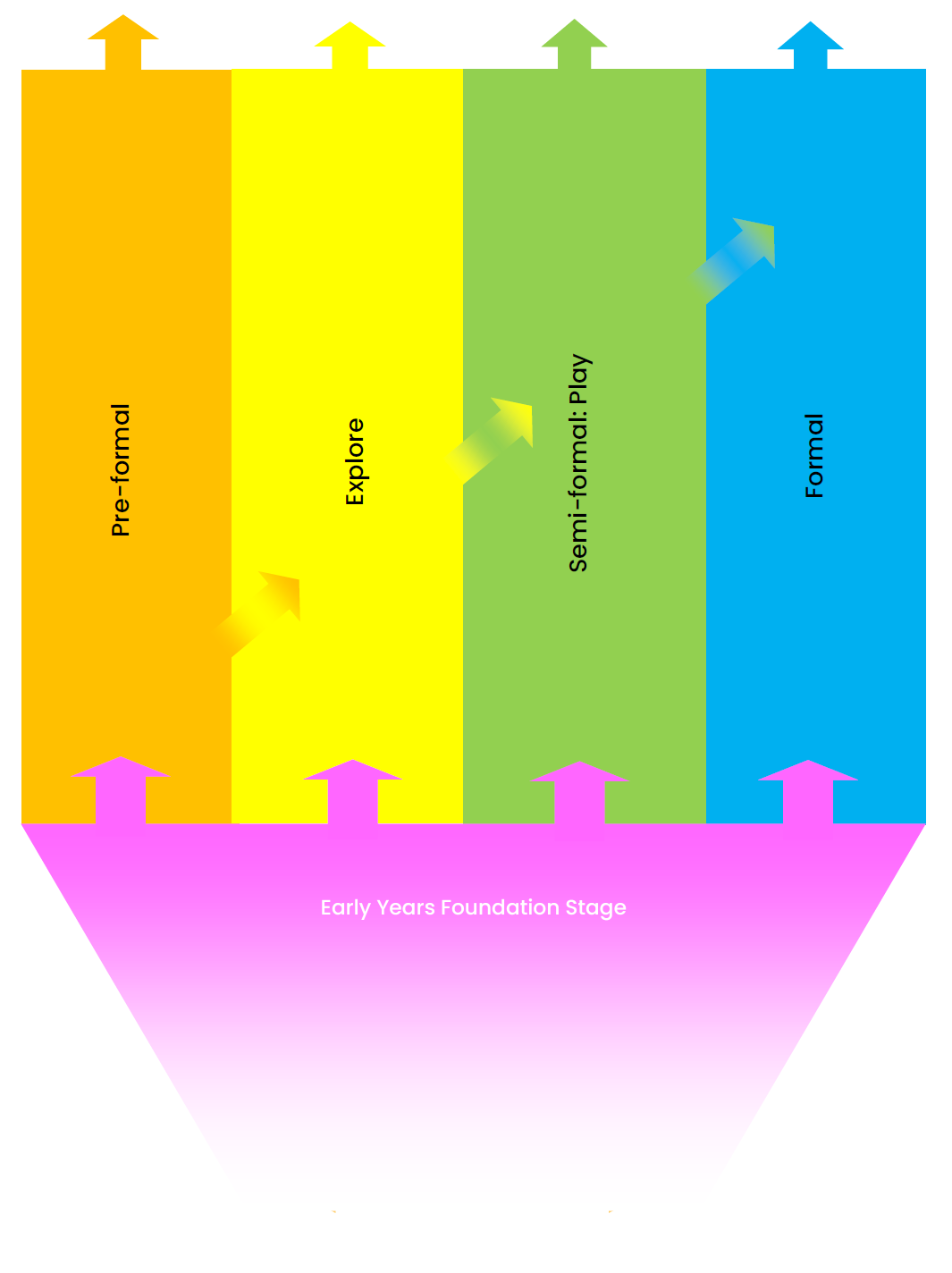
The school has 130 pupils grouped into 16 classes that are arranged across 4 theoretical pedagogical pathways. These begin on transition from the Early Years Foundation Stage and run through Key Stages 1 and 2 until the pupils’ transition to relevant secondary provisions at the end of year 6. The pathways are the Preformal Pathway, the Explore Pathway, the Semi-Formal Play Pathway and the Formal Pathway. Both the Explore Pathway and Formal Pathway are further divided into sub-pathways. These are Informal Explore and Semi-Formal Explore in the Explore Pathway. In the Formal Pathway they are Formal and Formal: National Curriculum.
Each curriculum pathway is designed to have a defined approach in terms of its provision that extends to the curriculum areas taught, numbers of pupils in a class, staff to pupil ratios, underlying pedagogy and recommended developmental frameworks. Each pathway works towards specific but broad outcomes that underpin and form the foundation of the learners individualised needs (see Pathway Characteristics and Pathway Provision Overview tables below).
Within the context of an underlying approach all pupils are then planned for and taught at Sunningdale School in a highly personalised way, by using developmental Personalised Learning Plans facilitated through an environmental context established by individual engagement profiles (see Personalised Learning Plans and Engagement Profile & Motivators sections).
Pathway Learner Characteristics
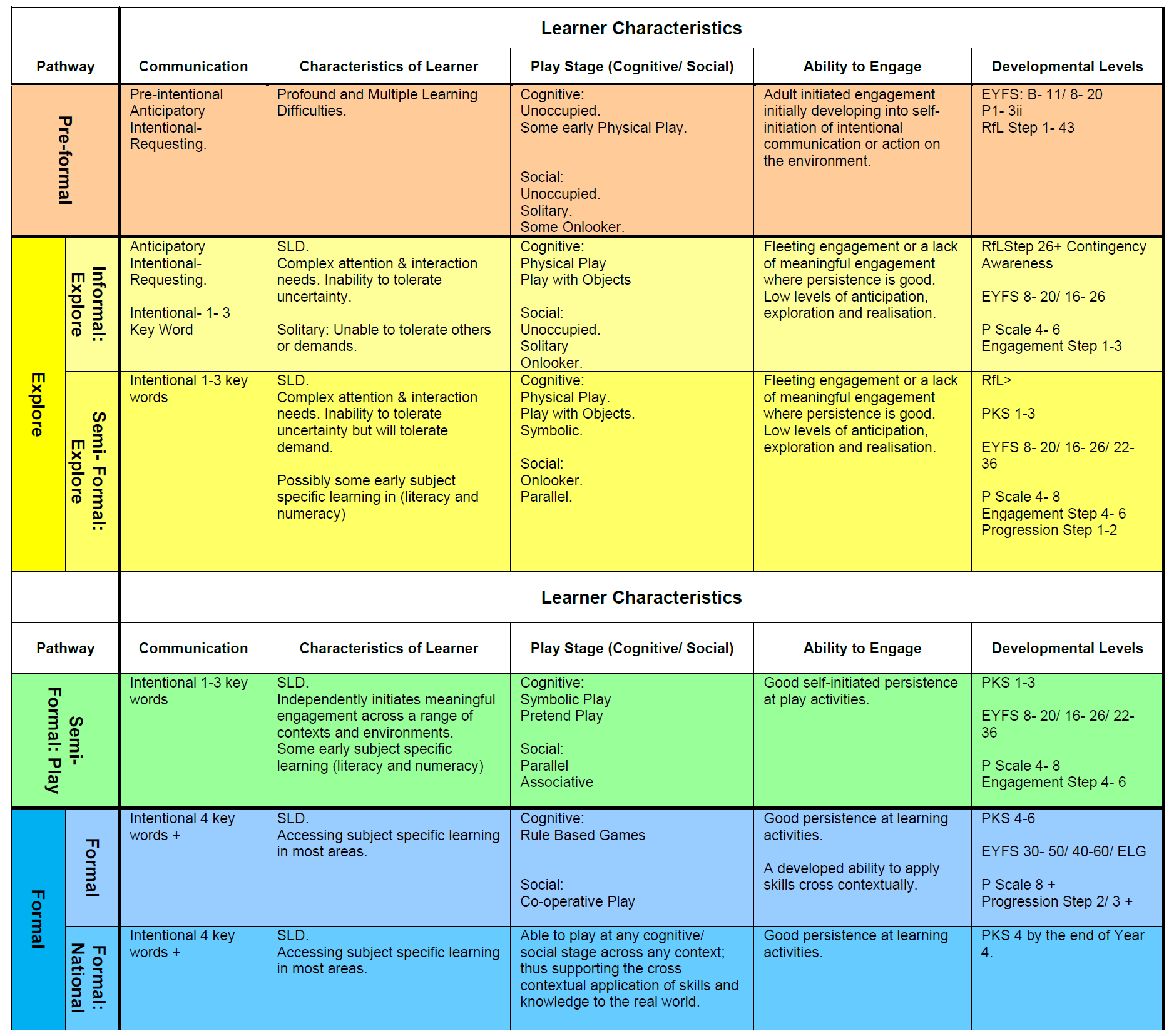
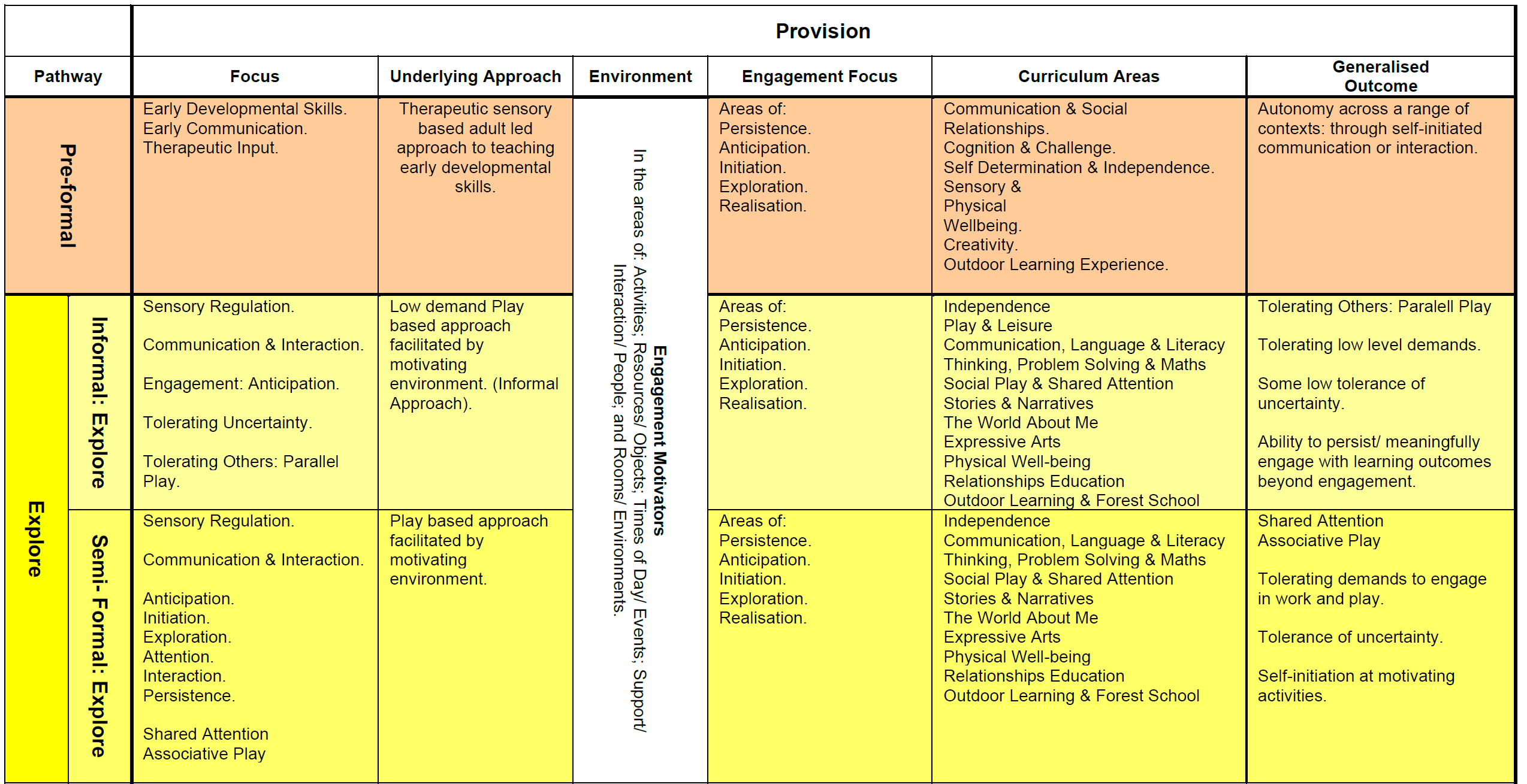
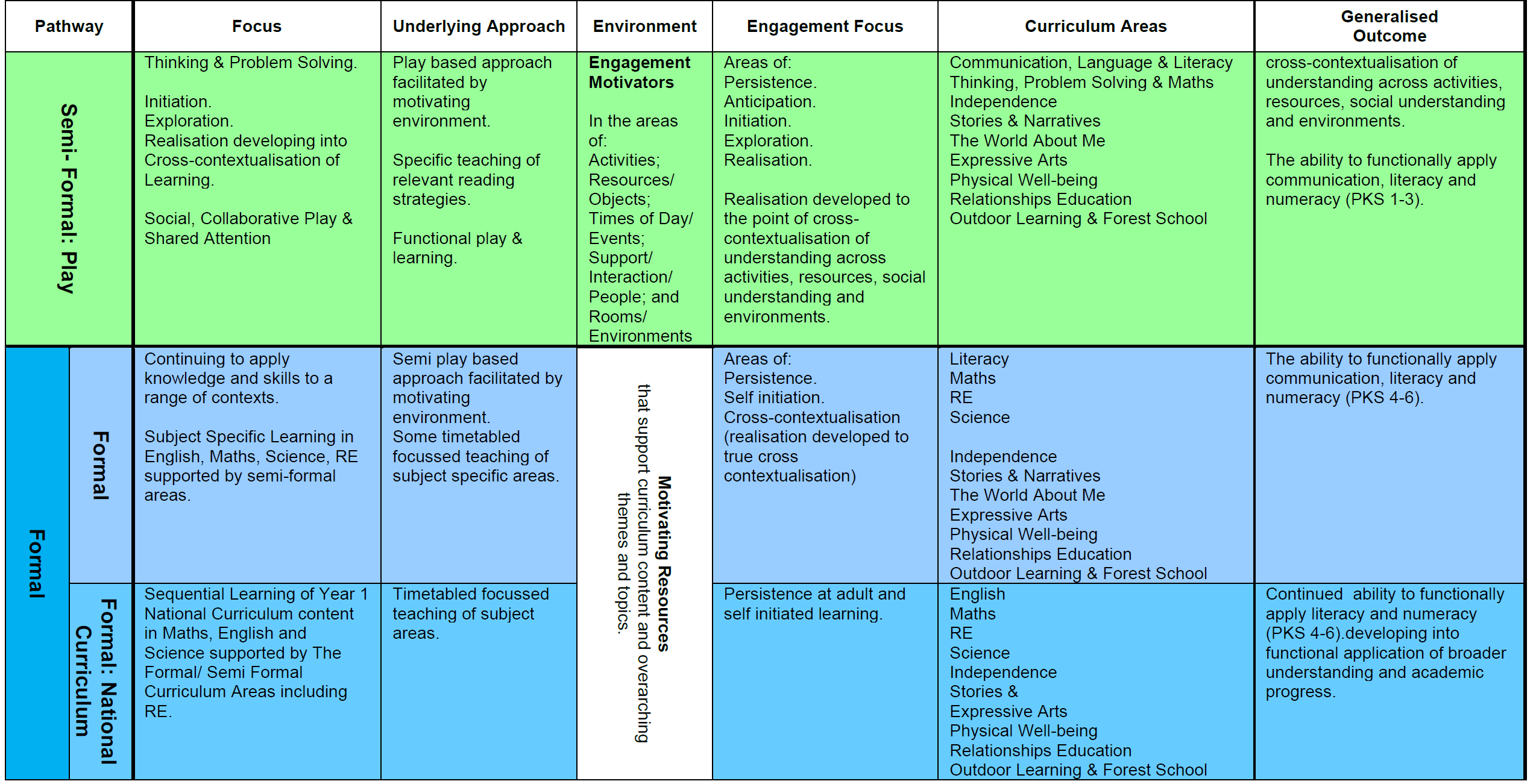
Play
Sunningdale School has utilised an Early Years influenced play based learning approach to support teaching and learning across all key stages for just over 10 years. Play is one of the most important ways in which young children gain essential knowledge and skills. Children play to make sense of the world around them, and to find meaning in an experience by connecting it to something already known. Through play, children express and expand their understanding of their experiences (Unicef, 2018). At this point ‘the value of play in human development and experience is beyond dispute’ (Moylett, 2022, p.44).
Play is a key approach in developing agency, enabling children to take on an active role and ownership in their experiences, as well as helping them to be capable, autonomous, and agents of their own learning. If we are aiming to develop agency we need to put the child in an exploratory environment. An over-adherance to structure, routines and regulation in the pursuance of compliance and conformity can lead to and reinforce an inflexibility of thought.
It provides the underlying pedagogy for Early Years and all four pathways, although to a lesser extent via timetabling in the Formal Pathway. The way it is adapted and applied across the Early Years Foundation Stage and each of the pathways, however, is quite different.
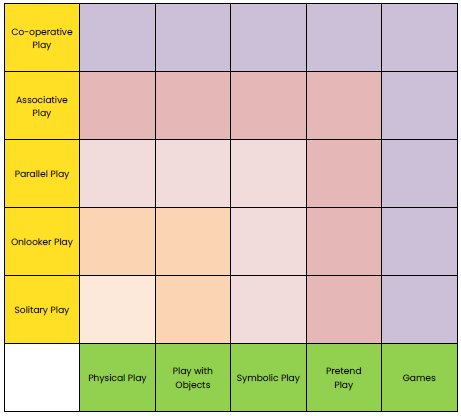
Hybrid Classes
Cross- pathway hybrid classes will be considered where children’s learning characteristics require elements of two or more pathways.
A number of videos with examples of our curriculum pathways can be found in the News Videos and Curriculum sections of our YouTube channel here.
References
Equals (2021) Curriculum. Available at https://equals.co.uk/
Moylett, H. (2022) Characteristics of Effective Early Learning: Helping Young Children Become Learners for Life. London: Open University Press.
UNICEF (2018) Learning through Play: Strengthening learning through Play in early childhood education programmes. New York: UNICEF.